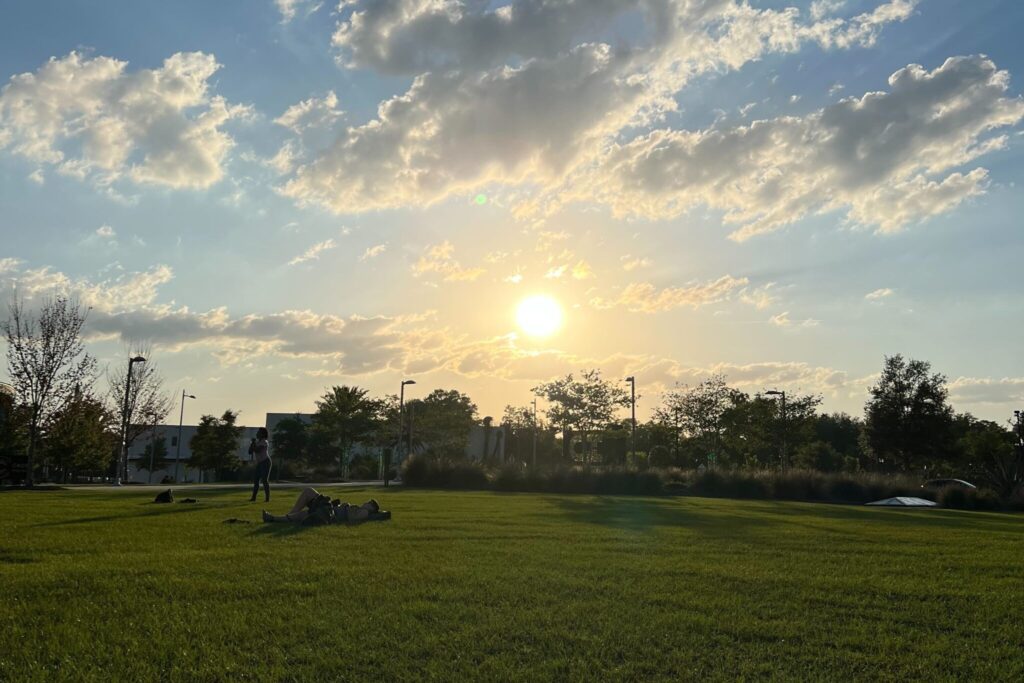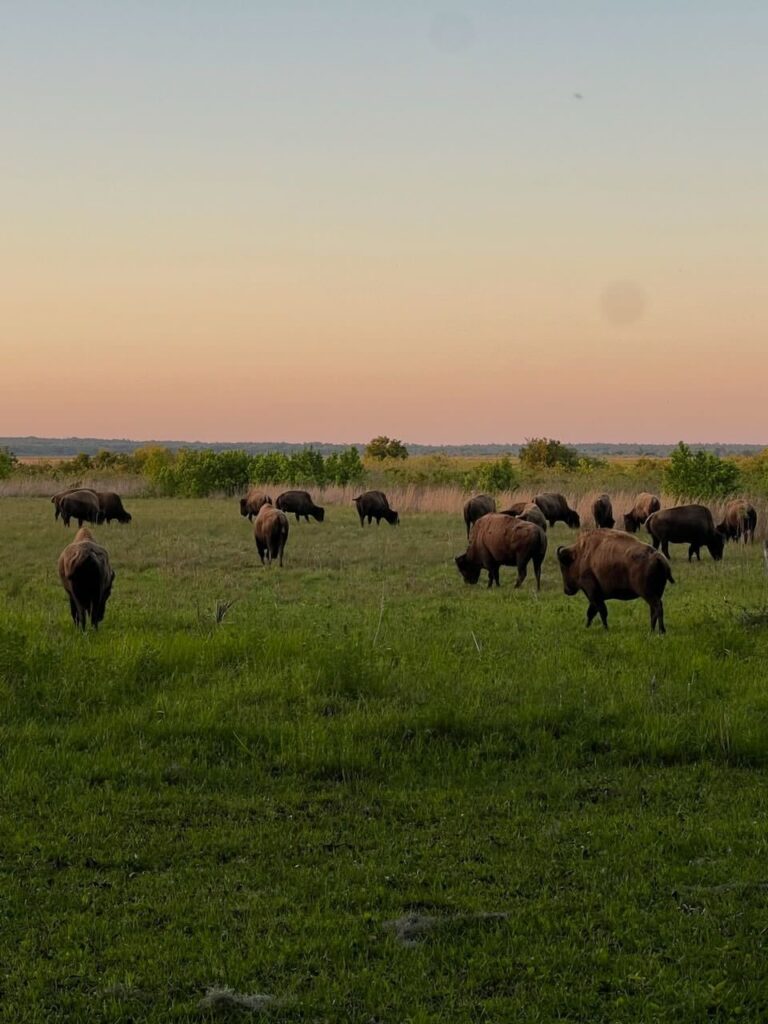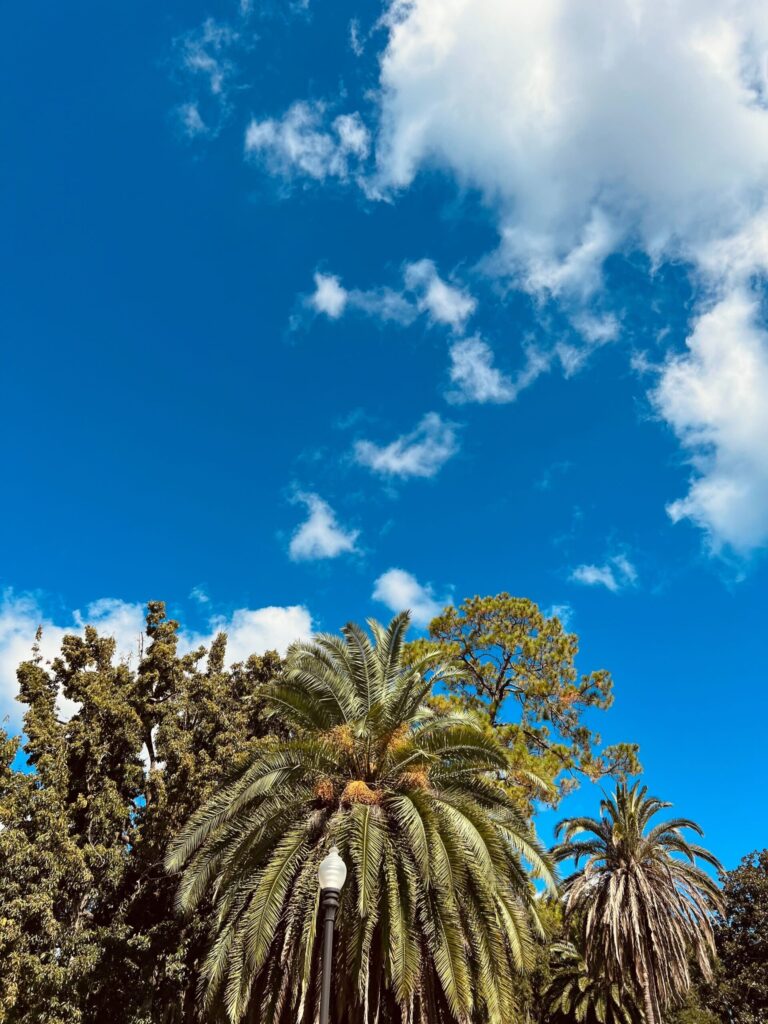7 College Day Trips to Florida’s Wildlife Corridor
Drop your textbooks – it’s time to take a study break with a trip to the Corridor.

No matter how much you love your school, everyone needs to step away from the college stress and social scene every once and a while. Lucky for most Florida college students, the Corridor is free (or, very cheap) and only a short drive away.
So, grab your one friend with a car, pile in and set out for a rejuvenating adventure in the Corridor!
Lake Talquin State Park (FSU)
22 minutes from Florida State University
$3 entrance fee per car
Just a short car ride away from Florida State University sits this peaceful, 12,000-acre reservoir surrounded by forests of Southern magnolia, red maple and more. A 1.2-mile hike through the woods offers plenty of opportunities to spot wild critters. Keep an eye out for deer and wild turkeys and listen for songbirds. The trail verges off for a third of a mile and takes you to a bluff overlooking the lake. At the lake, take a break from the dining hall by grilling hotdogs and burgers at barbeque pits under the large pavilion and watch the sunset at the boardwalk before heading back to campus.
Live Wildly Tip: Visit in late fall to see the leaves display a stunning array of autumn colors.
Carl Duval Moore State Forest and Park (UF)
45 minutes from the University of Florida
$2 entrance fee per car
Take a study break at this quaint, quiet park with diverse nature and wildlife. Despite its small size, you’ll see lakes, sandhill, mesic flatwoods and wet flatwoods, plus otters, ducks, turkeys and gopher tortoises. If you’re lucky enough to be a student with a dog, bring along your pup and choose between two short hikes:
- 1.2-mile loop provides two views of the Up and Down Lake and has signs identifying different trees along the way
- 1.5-mile out-and-back hike leads you through sandhills and basin swamps to Alligator Creek and eventually, Hardesty Lake.
Beker – Wingate Creek (USF)
1 hour from the University of South Florida
Free
Even though the park dates back thousands of years, its ecosystem is mostly untouched, giving you a glimpse of Florida in its purest form. Prepare yourself for quite a contrast to the loud dining halls and college parties – Beker-Wingate Creek is secluded and doesn’t have any facilities.
Sounds scarier than a pop quiz? Don’t fret! It’s worth it once you see the endangered and rare plant and animal species, such as scrub morning glory, fox squirrels, gopher tortoises and more. Hike the out-and-back 3-mile trail along mostly soft sand and take in the fall display of pine lilies and terrestrial orchids. Your only companions may be the wild critters and peaceful hum of the flowing creeks.
Live Wildly Tip: To access the park, call the ranger station at 941-741-3028 for the code. Make sure you bring a hat and plenty of water and sunscreen.
Wekiwa Springs State Park (UCF & Rollins)
40 minutes from University of Central Florida; 25 minutes from Rollins College
$6 entrance fee per car
Exams who? Leave behind your stress for a day and escape to the emerald, crystal clear waters of Wekiwa Springs. The spring remains around 72 degrees, so you can swim (with floaties!), snorkel or paddle here year-round.
Live Wildly Tip: Unless you have a kayak tucked away in your dorm room, you can rent a kayak, canoe or paddle board nearby – ranging from $35-40 for two hours per person.
Spread out a blanket on the grassy shore and enjoy a packed lunch overlooking the spring. The park includes a volleyball net and horseshoe pit near the picnic area. Before heading back to school, you can explore more than 25 miles of trails through sandhill, river swamp, mesic flatwoods and more, where you may spot wild turkeys or a Florida bobcat!
Big Cypress (Broward College, Nova Southeastern University)
1 hour from Broward College and Nova Southeastern University
Most access points are free
If you can’t stand to look at your white dorm room walls anymore, it’s time for a change of scenery – and Big Cypress is an ideal place to do just that. Start with a hike on the Kirby Storter Boardwalk, which stretches nearly a mile through wet prairies, floodplain forest and wildflowers to an open pond. The park also features rivers for paddling when water levels are lower in late fall.
Before you go back to the “real world,” catch the sunset on a 17-mile scenic drive along the Turner River, Wagonwheel and Birdon Roads loop, where you’ll have tons of opportunities to spot wildlife or get that perfect sunset shot for the ‘gram (when parked, of course!).
Live Wildly Tip: The best time to visit is during dry season from November-March.
Tiger Bay State Forest (Daytona State)
15 minutes from Daytona State College
Only some entrances require a fee (Indian Lake does not)
This nearly 30-acre, swampy forest is home to an array of wildlife, such as the Florida black bear, turkeys and white-tailed deer. It’s so close to school that you only need a few hours between classes to slip away and experience the wild side of Florida.
Explore the mostly pine forest and occasional cypress swamps on the 2-mile loop of the Buncombe Hill Hiking Trail, which takes you to Indian Lake. At the lake, there are bathrooms and picnic tables to enjoy a quiet picnic, catch up on homework or rest among the peaceful scenery.
Everglades (UM, Miami-Dade College)
40 minutes from University of Miami and Miami-Dade College
$30 entrance fee per car
Trade the wild Miami college scene for a different kind of wild – more than 164 plant species and unique wildlife, including manatees, American crocodiles and the Florida panther. The park features the largest remaining stand of Pine Rockland Forest, plus cypress, mangroves, tropical hammocks and more. Check out the Flamingo hiking and paddling trails.The 0.5-mile West Lake Trail takes you to West Lake on a boardwalk through white, black and red mangroves. Or visit Bear Lake from the 1.6-mile Bear Lake Trail featuring 50 different tree species. Paddle rentals are available at both lakes – but watch out for alligators and crocodiles!
Live Wildly Tip: It’s best to visit during the dry season here as well, or else you’ll risk wet terrain, storms and bugs. Yet in Florida, it’s smart to bring plenty of water and bug spray no matter when you go!
How else do you bring the Corridor into your college life? Submit your adventures @LiveWildlyFL!



Photos in this story are courtesy of Rodrigo Nadal, University of Florida student.

